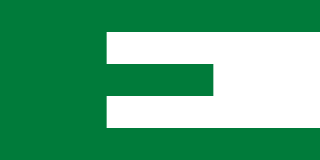
Natura 2000 is a network of nature protection areas in the territory of the European Union. It is made up of Special Areas of Conservation and Special Protection Areas designated under the Habitats Directive and the Birds Directive, respectively. The network includes both terrestrial and Marine Protected Areas.

The International Union for Conservation of Nature (IUCN) is an international organization working in the field of nature conservation and sustainable use of natural resources. It is involved in data gathering and analysis, research, field projects, advocacy, and education. IUCN's mission is to "influence, encourage and assist societies throughout the world to conserve nature and to ensure that any use of natural resources is equitable and ecologically sustainable".
European integration is the process of industrial, economic, political, legal, social, and cultural integration of states wholly or partially in Europe or nearby. European integration has primarily come about through the European Union and its policies.

Eurodoc, the European Council for Doctoral Candidates and Junior Researchers, is an international federation of national associations of doctoral candidates and early career researchers of the European Union and the Council of Europe.
The International Foundation for Electoral Systems (IFES) is an international, non-profit organisation founded in 1987. Based in Arlington, Virginia, United States, the organization assists and supports elections and electoral stakeholders. Since 1987, IFES has worked in 145 countries and has programs in more than 50 countries throughout Asia-Pacific, Africa, Eurasia, the Middle East, and North Africa, and the Americas.

The Union of European Federalists (UEF) is a European non-governmental organisation, campaigning for a Federal Europe. It consists of 20 constituent organisations and it has been active at the European, national and local levels since 1946.
The Joint Nature Conservation Committee (JNCC) is the public body that advises the UK Government and devolved administrations on UK-wide and international nature conservation.

Although there has been a large degree of integration between European Union member states, foreign relations is still a largely intergovernmental matter, with the 27 members controlling their own relations to a large degree. However, with the Union holding more weight as a single bloc, there are at times attempts to speak with one voice, notably on trade and energy matters. The High Representative of the Union for Foreign Affairs and Security Policy personifies this role.

Europa Nostra is a pan-European Federation for Cultural Heritage, representing citizens' organisations that work on safeguarding Europe's cultural and natural heritage. It is the voice of this movement to relevant international bodies, in particular the European Union, the Council of Europe and UNESCO. It has consultative status with UNESCO and is recognised as an NGO partner.

Leonard Orban is a Romanian independent technocrat who served as the Commissioner for Multilingualism in the European Commission, the executive body of the European Union (EU). He was responsible for the EU language policy and was the first Romanian Commissioner and the first member of the Commission whose portfolio is exclusively multilingualism. His term of office began on 1 January 2007 and ended on 9 February 2010. With a background in engineering and economics, Orban has taken up various posts working for the accession of Romania to the European Union, most prominently as Deputy and later as Chief Negotiator for his country at the time of final negotiations with the European Union.
Adrian Marten George Darby, is a British conservationist and academic.

The World Energy Council is a global forum for thought-leadership and tangible engagement with headquarters in London. Its mission is 'To promote the sustainable supply and use of energy for the greatest benefit of all people'.
The New Zealand Plant Conservation Network (NZPCN) is a non-governmental organisation devoted to the protection and restoration of New Zealand's indigenous plant life, including vascular plants, mosses, liverworts, hornworts and lichens.

The Snow Leopard Trust is the largest and oldest organization working solely to protect the endangered snow leopard and its habitat in 12 countries of Central Asia. The trust is a non-profit organization with its headquarters in Seattle, Washington. The present total population of snow leopards in the wild is estimated at between 3,920 and 6,390.
The European Network Against Racism (ENAR) is an EU-wide network of anti-racist NGOs. ENAR aims to end structural racism and discrimination and advocates for equality and solidarity for all in Europe. It connects local and national anti-racist NGOs throughout Europe and acts as an interface between its member organisations, and the European institutions. It voices the concerns of ethnic and religious minorities in European and national policy debates.
The Centre for European Volunteering (CEV), established in 1992, is the European network of over 60 organisations dedicated to the promotion of, and support to, volunteers and volunteering in Europe at European, national or regional level. Through the network, CEV works to ensure that: the value of quality volunteering as an expression of Solidarity and European values is understood, supported and celebrated; policies & programmes, together with the European social environment, inspires, encourages and supports quality European Volunteering; Individuals and organisations that are active in the volunteering and civil society sphere share, learn and are inspired from one another in the framework of CEV. In this way CEV reaches out to the many thousands of volunteers and volunteer organisations in Europe as a source of support bringing the European dimension to their work.

The European Centre for Nature Conservation (ECNC) was a Dutch non-profit foundation which was active in the field of European nature and biodiversity policy between 1993 and 2017. It was set up as a network of university departments, expert centres and government agencies and operated as a European biodiversity expertise centre. The organization promoted sustainable management of natural resources and biodiversity, and aimed to stimulate interaction between science, society and policy.
European Network Remembrance and Solidarity (ENRS) was created in 2005 as a joint initiative by German, Hungarian, Polish, and Slovak ministers of culture. In 2014 Romania joined the structure.

Coastal & Marine Union (EUCC) is a nonprofit organization with a membership of around 500 institutions, NGOs and experts, in 40 countries. Its network at large involves about 2500 professionals involved in coastal and marine management issues. Founded in 1989 with the aim of promoting coastal management by bridging the gap between scientists, environmentalists, site managers, planners and policy makers, it has grown into the largest network of coastal practitioners and experts in Europe, with 13 National Branches, an International Secretariat in Leiden, and offices in Barcelona (Spain), Biarritz (France), Warnemünde (Germany), Szczecin (Poland), Klaipeda (Lithuania) and Sliema (Malta). EUCC's working area is Europe and its neighbouring regions, especially the Black Sea and the Mediterranean.











